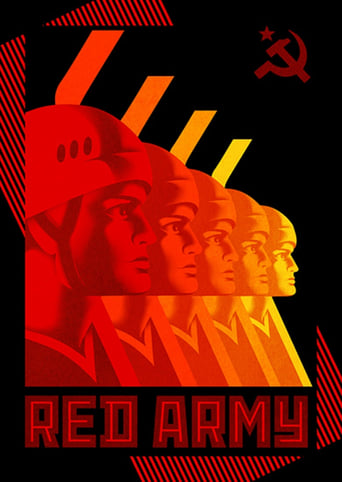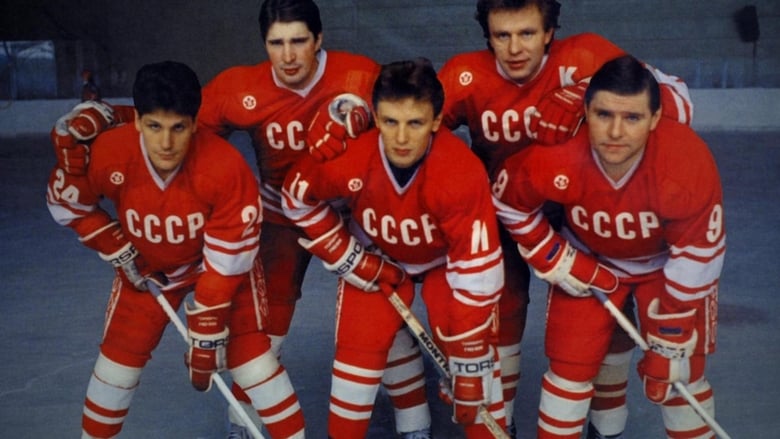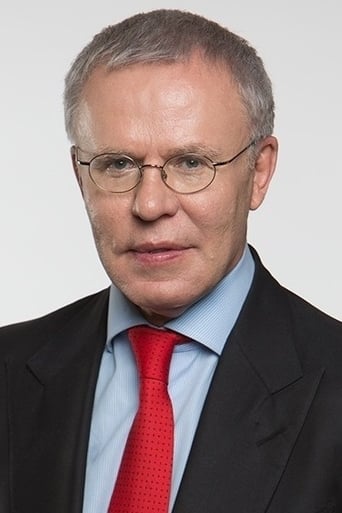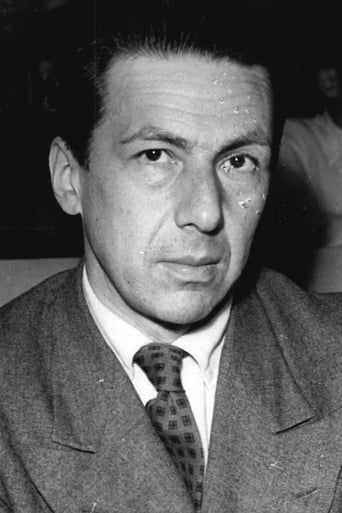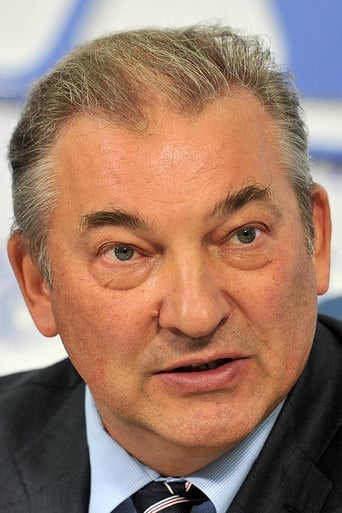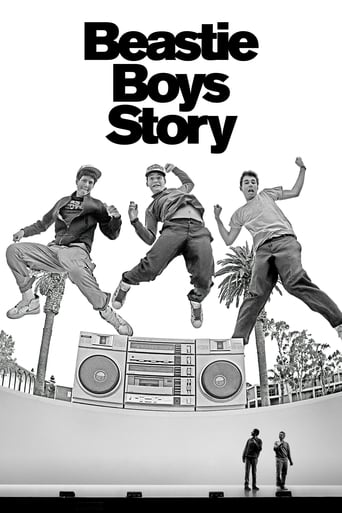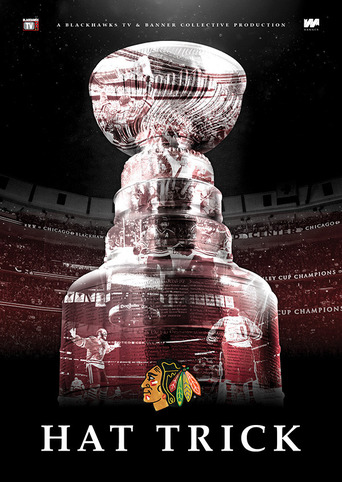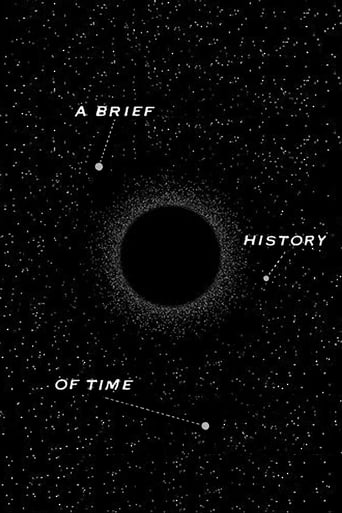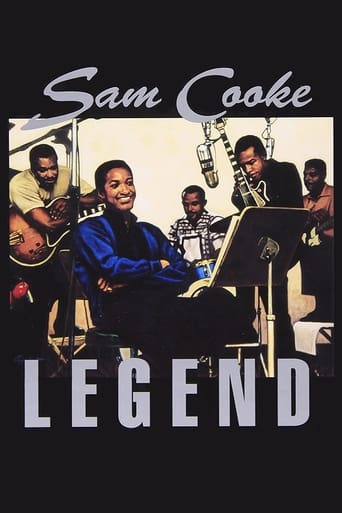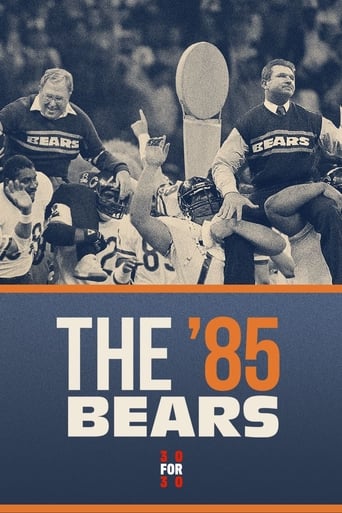Red Army (2015)
A documentary highlighting the Soviet Union's legendary and enigmatic hockey training culture and world-dominating team through the eyes of the team's Captain Slava Fetisov, following his shift from hockey star and celebrated national hero to political enemy.
Watch Trailer
Cast
Similar titles
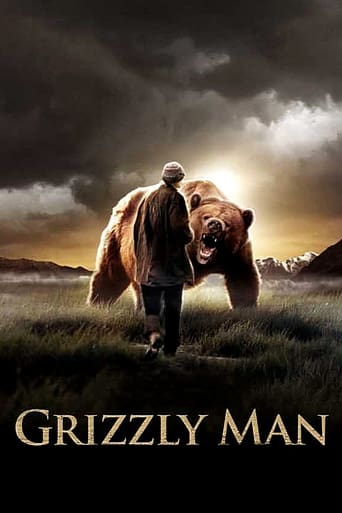
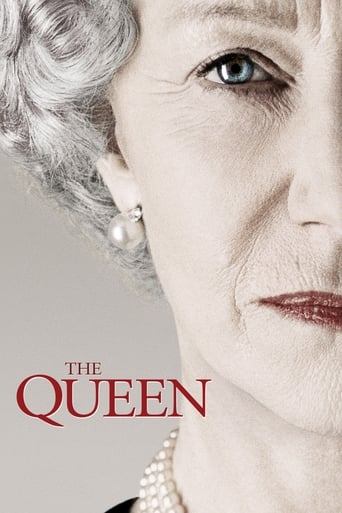
Reviews
the audience applauded
So much average
It is neither dumb nor smart enough to be fun, and spends way too much time with its boring human characters.
It is a whirlwind of delight --- attractive actors, stunning couture, spectacular sets and outrageous parties.
Fetisov is a prickly guy. The opening scene where he blows off the interviewer to use his cell phone established this. However, he's a hockey legend so the interviewer puts up with it and often fumbles his questions. This is the mistake of "Red Army," a decent biography of Slava Fetisov, rather than that of the Russian hockey team. There are lots of great game footage as well as old footage of the founder of the Red Army team, Tarasov, which the film covers for about 10 minutes but other than Tretiak, some player I never heard of, a journalist, Fetisov's wife and a KGB agent, there aren't that many people other than Fetisov who have a voice in the movie and even less who were players we know. Two other star players are interviewed: Vladimir Krutov, who comes off as more prickly and private than Fetisov and Alex Kasatonov who also evades direct questions. Former coach Viktor Tikhonov refused particaption. This leaves Fetisov to carry the film and unfortunately, the interviewer is so out of his depth and star struck that he allows Fetisov to become the star at the expense of others. For instance, an article is full frame about his quitting the Red Army team. Yet also mentioned in the article as someone who quit with him is Igor Larionov. Where's HIS side of the story? The movie follows Fetisov into the NHL but NO mention is made of how Red Army coped with the sudden losses of it's stars. No mention is made at all of the first Soviet to be allowed to play, Sergei Priakhin. No mention is made of Tretiak's successors. Just how do you replace the best goalie in the world? VF mentions there was a purge of staff & players after the 1980 loss. WHO?? As for Tikhonov, nothing is mentioned that he actually had lots of playing and coaching experience before taking over Red Army yet the movie leaves it that he was hired simply because he was a protégé of a KGB bigwig. As for Kasatonov, the movie implies that their rift came simply because Kasatonov didn't appear with other players in a TV interview supporting Fetisov. It was more complicated than that but basically Fetisov felt AK was Tikhonov's spy, a resentment that carried over when the NJ Devils signed both and they stunk because there was no chemistry anymore. A competent documentarian would've found time to mention these things and balance the film but, again, this is the Slava Fetisov Show. So much so that no mention is made of how he was the one who hired the limo that led the career ending limo wreck that ended Vladimir Konstantinov's career. OK, it's not his fault but that's TWO car accidents he walked away from and it ended a teammates' career. I'd say that's pretty important. Nor is anywhere mentioned the alleged steroid use the USSR team has been notoriously accused of. Of course he'd deny it but it'd be nice to have him on the record as saying so. If you want a REAL history of that team, keep waiting. This movie is a flawed puff piece although if you're a Fetisov fan, this is the movie for you.
"Do you believe in miracles?! YES!!" That was sportscaster Al Michaels' immortal exaltation at the end of the 1980 Olympic hockey game which became known as "The Miracle on Ice". An American team of amateur and college hockey players had defeated the vaunted team from the Soviet Union, which had won the gold medal in the last four Winter Olympics and six of the last seven. The U.S. team would go on to win the gold medal by defeating Finland. The highly improbable American victory over the Russians was named by Sports Illustrated as the greatest sports moment of the 20th century and spawned a TV movie, a documentary film and the 2004 feature "Miracle" starring Kurt Russell. But what of the Soviet team? How did this shocking loss affect them? And was this the beginning of the end for Russian dominance of international ice hockey? The documentary "Red Army" (PG, 1:25) answers those questions and many more as it delves into the stories of the men behind the hockey masks and the dramatic history of their national sport.The story of the Soviet Red Army hockey program is one of athletic, social, political and military influences that reflected the larger phenomenon of the Cold War and dictated the fates of those involved. This film contains the kind of interviews that you'd expect from such a documentary and also uses little-seen archival footage, creative modern graphics and skilled editing to tell this story in a very engaging way. The main interviewee is Soviet team captain Viacheslav Fetisov who describes his story as it felt back then and apparently still feels today. Interviews with his wife, his former teammates, a former KGB agent and a few journalists tell of their experiences and give valuable color commentary, but just as revealing is what is NOT said in the documentary. Co-producer, director, writer and interviewer Gabe Polsky is smart enough to turn the camera on early, keep it rolling and edit into the film the honesty and emotion that shows itself in the candid moments and unguarded reactions of his interviewees.The film's scope covers over four decades of the Soviet Union's hockey program, but focuses mainly on the 1980s, a decade which began with Cold War tensions heightened by the Soviet invasion of Afghanistan and ended with the rapid decline of the USSR as a unified state. During this period, Fetisov and his teammates absorbed that crushing Olympic defeat, dealt with the changes that followed, rose to new challenges and, eventually, began to consider careers in the NHL, as the Soviet government gradually loosened its strong grip on its players, just as it began losing control of its people and its empire. Polsky uses all the tools at his disposal to illustrate how the Russians ran their program and what that program meant to the country. We see children from all over their massive and diverse nation training, playing and competing within the program. We observe "the best of the best of the best", as one interviewee describes them, transition from hockey players to Russian icons, and cogs in the Soviet Union's propaganda machine. We learn that these elite players were to place hockey above literally everything else in their lives. We come to understand that their purpose was to embody the superiority of their communist system. We get to peek behind the Iron Curtain and contemplate an untold story unlike any other in sports."Red Army" doesn't just reveal the untold story of the Soviet Union's ice hockey program, but helps us see that the men involved were more than their government's propaganda puppets, but were human beings with desires for their lives, both common and uncommon problems, and impressive amounts of talent and work ethic. This is a documentary that feels like a drama. The film brings openness to a notoriously closed system and tells a story that most audience members have never thought about, but will be unable to avoid thinking about after seeing this movie. The only weak spot I noticed was the soundbites of the director's amateurish interviewing techniques. That aside, this is a fascinating film which raises the bar for future documentaries of its kind. "A-"
Excellent biopic of of the Soviet Union's Red Army, as seen through the eyes and memories of great defenseman Slava Fetisov.Some of the previous negative reviews I think missed the point -- this was a film about Fetisov and the other players forming the "5-man" unit, a concept that is very Russian and is pretty much unheard of today in NHL hockey (possible exception of power play units notwithstanding). References to 1972 Summit Series would be out of place -- Fetisov was 22 for the 1980 Miracle on Ice, and it would be remiss to not mention the dominance that team would go on to have. Beating Canada in the Canada Cup final in 1981 (8-1!) was a testament to how good that team was. I should mention that Canada team included Wayne Gretzky, Mike Bossy, Guy LaFleur, Gilbert Perreault... a veritable "who's who" of NHL stars at the time, and all Hall of Famers now.Very revealing in what is said about Tarasov, his innovative coaching techniques, his sheer love of the game was obvious. Most shocking moment for me was to compare the affection Fetisov had/has for Tarasov, and the dislike (probably hatred is a better word) for Tikhonov. Watch his eyes narrow and expression change when Gabe first mentions Tikhonov.Fascinating to see the inner torment Fetisov had -- he is clearly a patriot who loved his country. Yet he was a virtual slave to a system that allowed him to play the sport he loved. His affection for his teammates is matched by his dislike of his coach, despite all the success he had with the team. He left the Soviet Union and joined the NHL, presumably because he wanted something for himself, but was branded here a "communist" and treated with no-little amount of contempt by opponents and even new teammates. I remember the press of the day and it was not positive (in general) to the newly arrived Russian players to the NHL, although foreign players (Swedes, Finns, Czechs, Slovaks) were already playing in the NHL for some time.Seeing film of Russian kids playing hockey made me think that could have been taken from almost anywhere in Canada. It was a nice moment.Part of me yearns for those days when "our" game and "their" game really were different. Now the game is more homogenized -- Canadian players at the NHL level are praised for their skill level (Crosby), while foreign players have often taken a more physical approach to their game and are successful (Ovechkin, Malkin).I grew up watching and playing the game, so it would seem to me to require some amount of "hockey-sense" to get the most out of this film. And yet, reading some of the former reviews by those who claim to know little/nothing about hockey indicates that maybe that criticism is unfounded.It's just a great documentary, very tight pacing and enjoyable. See it.
Red Army illustrates the way of life hockey creates for its players, fans, and country on and off the ice. Polsky intimately describes the pride, devotion, and hardships these players experienced once shoved onto the patriotic pedestal meant to represent strength, determination and nationalism Russia insisted its people adopt. To be a part of the Red Army hockey team was a national honor, it proved your undying love and support for your country, it meant absolute popularity and respect from your fans (which was the entire Russian population), because to Russia, it wasn't just a game, it was a way of life, it was a fight that could move Russia to the top once again. The film primarily follows Slava Fetisov, highlighting his triumphs and relationship with the Red Army team and Russian government, his impossibly tough transition in the NHL, and the affect his hockey talents and patriotism had on his personal life. It's absolutely mesmerizing to watch the dance of the game, the political movements and the life decisions these players and their families are forced to make. It's a life full of tests and courage - Polsky shares an absolutely phenomenally detailed truth.
